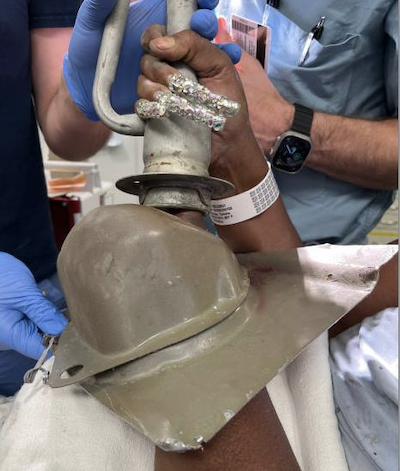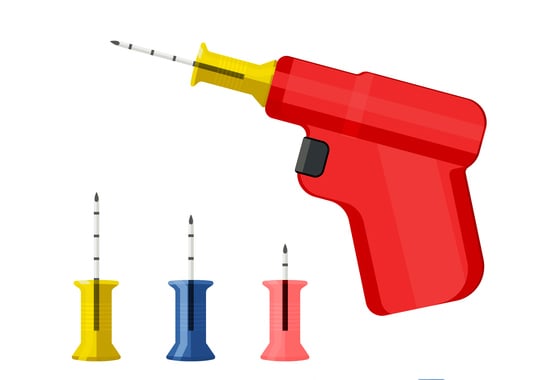Prepare to be a PGY1
Emily C. Roblee, MD
PGY1, University of Cincinnati Emergency Medicine Residency
At the end of my fourth year of medical school, I was coasting. All the tough rotations were over. I had made it beyond the end of the interview trail. My carefully-arranged rank list had been submitted. And after the exhilarating blur of Match Day, I knew where I would be spending the next four years as an EM doctor. Life was good - and easy - and nothing that I did as a med student seemed to matter much anymore.
Fast forward a few weeks to the beginning of intern year - when I finally began my long-awaited career as a physician - and suddenly everything seemed to matter. I needed to be confident in my assessments and plans because now I was putting in the orders to enact them. I was using my procedural skills on real patients. I was working long hours and there was now no chance that I would be sent home early. It was both exciting and overwhelming; I climbed a steep learning curve. While no one can truly prepare you for this rite of passage, perhaps you can find value in some of the lessons I learned during the summer of intern year.
1) Remain calm. Even when confronted with a patient with unstable vital signs, you often have time to think about the best course of action, or to reach out to a senior resident or attending who knows what to do. When all else fails, go back to the basics of airway, breathing, circulation. When you start to panic, you can't help yourself or the patient!
2) Don't be afraid to be wrong. It's important to come up with your own assessments and plans, rather than presenting the HPI and physical exam and then asking your senior or attending what to do. If you don't practice, you won't learn.
3) Ask for help when you need it. Everyone knows that the interns are new and need a lot of guidance, especially in the beginning. If you are ever uncomfortable with a situation and need help, use your resources.
4) Don’t avoid work. Medicine is a team sport and you signed up for it! It can be tempting to avoid picking up another patient or to sign out a procedure that you don't want to do. However, cheating yourself of learning opportunities and increasing your colleagues’ workload only makes life more difficult for you in the long run.
5) Stay positive! We chose a tough job and sometimes it’s easy to feel down about it. Try not to perpetuate negativity by complaining to your colleagues. However, I have found that if something is really bothering me and I don't talk it out with someone, my attitude can worsen. You just need to choose the appropriate person and setting.
6) Don't take things personally. We have a job that involves interacting with a lot of people: patients, ancillary staff, consult services, and other EM providers. Sometimes they’re not very nice. Let it roll off your back, stay professional, and just worry about doing your job.
7) Learn from your patients. If you see something you don't understand, read about it. If you see something interesting, write it up or maybe even turn it into a lecture! I’ve learned the most from researching topics related to specific patients that I’ve seen in the ED.
8) Use a lot of lidocaine! Seriously: more is better (as long as you aren't giving more than the maximum dose). Flood that subcutaneous tissue! Your patients will thank you for it.
Related Content

Mar 23, 2025
Severe Finger Entrapment in Gas Filler Cap Valve of 2003 Ford Expedition
How do you manage a case of a patient's finger stuck so completely in a Ford Explorer gas valve that EMS arrives with part of the vehicle attached to your patient? Hint: Consider the use of a nasopharyngeal tube, an angle grinder, and DoorDash.

Nov 02, 2022
Critical Care Alert: A Randomized Trial of Drug Route in Out-of-Hospital Cardiac Arrest
Every minute counts for long-term outcomes in out-of-hospital cardiac arrest. Does the route of administration for lifesaving medications play a role? This EMRA Critical Care Alert dives into the PARAMEDIC-3 trial, comparing outcomes in OHCA patients who were treated with intraosseous access versus intravenous access.

Dec 09, 2025
Pseudo-Subarachnoid Hemorrhage Following Cervical Medial Branch Block Using Gadolinium-Based Contrast: A Case Report and Review of the Literature
This case report explores the evidence behind recognizing and treating conditions caused by gadolinium-based contrast agents — including pseudo-subarachnoid hemorrhage.




